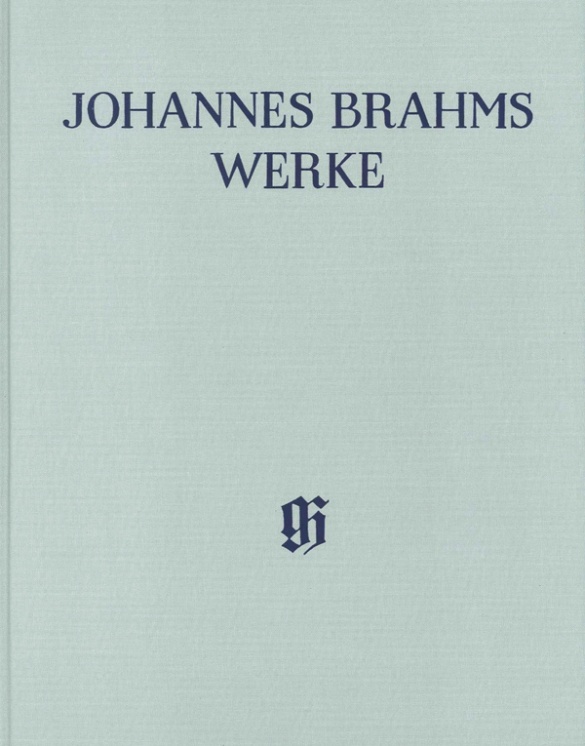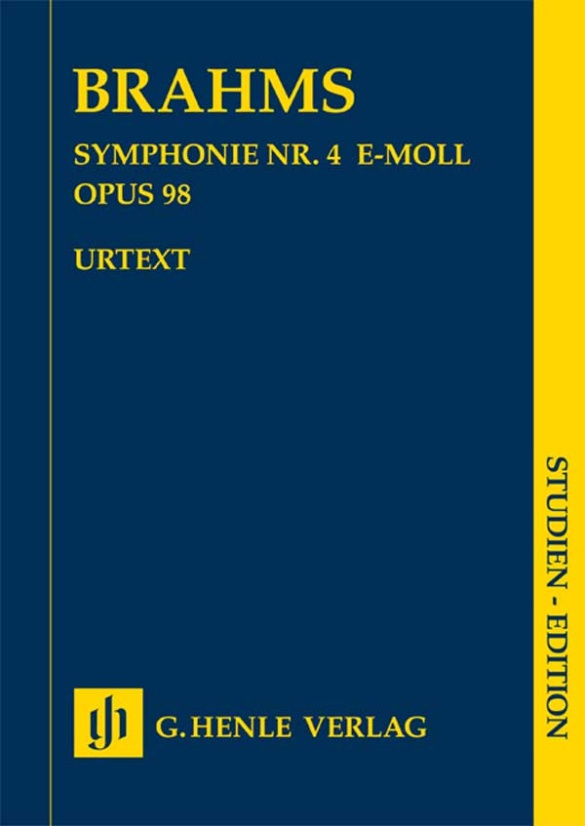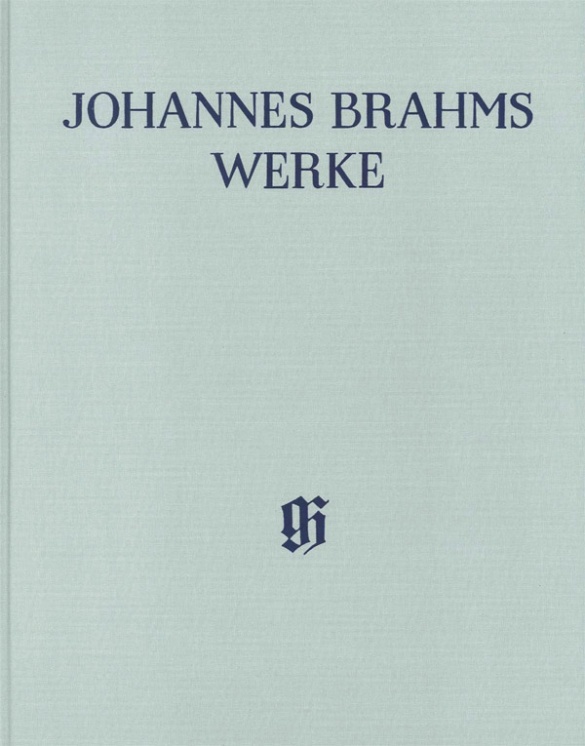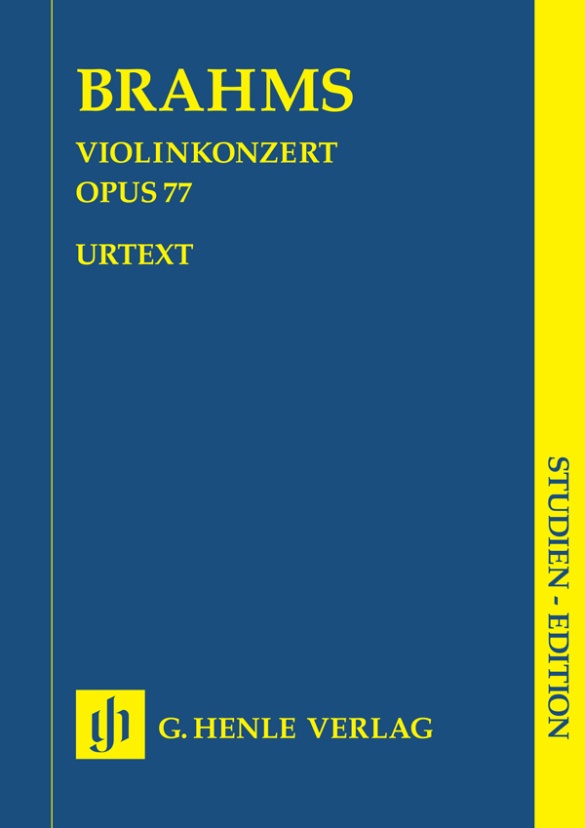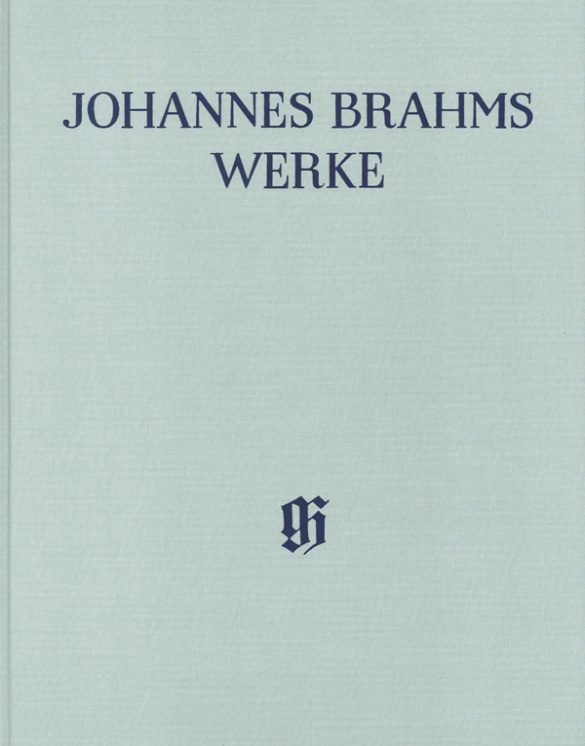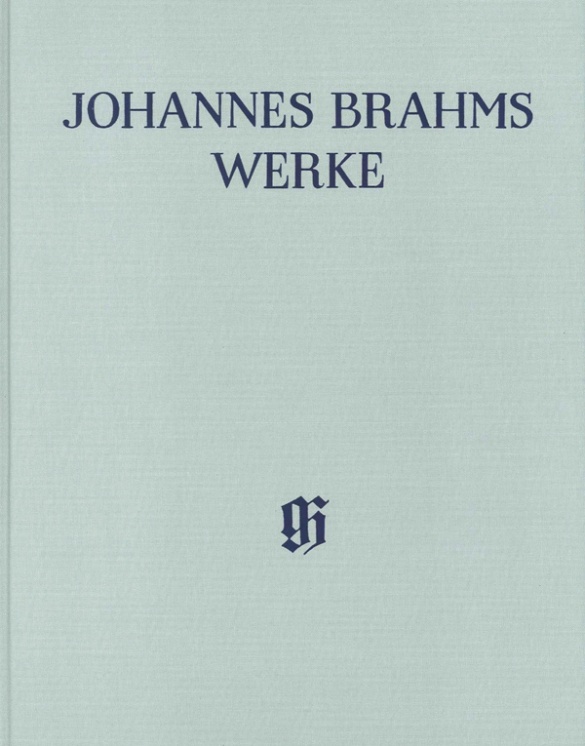Johannes Brahms
Ser. 1, Vol. 2 | Symphonie n° 2 en Ré majeur op. 73
CONTENU/DÉTAILS
CONCERNANT LE COMPOSITEUR

Johannes Brahms
Son œuvre considérable comprend de la musique de chambre, des œuvres pour piano, de nombreuses compositions pour chœur et des lieder (parmi lesquels des compositions sur des textes de chants populaires) ainsi que les grandes pages orchestrales des années 1870 et 80. Ses compositions sont marquées par le procédé de la variation à développement. Il passe à la fois pour avoir été aux antipodes de la Nouvelle École allemande animée par Liszt et le représentant de la «musique absolue».
| 1833 | Né le 7 mai à Hambourg en tant que fils d’un musicien. À l’âge de 7 ans il prend ses premières leçons de piano chez Willibald Cossel, puis chez Eduard Marxen. Premières auditions publiques à partir de 1843. |
| 1853 | Lors d’une tournée de concerts dans les villes allemandes, il fait la connaissance de Schumann qui, dans son article «Neue Bahnen» (Nouvelles voies) l’annonce comme le grand compositeur à venir. Il noue avec Clara Schumann une profonde amitié qui tiendra toute sa vie. |
| 1854–57 | 1er Concerto pour piano en Ré mineur op. 15. |
| 1857–59 | Chef de chœur, pianiste et enseignant à la cour princière de Detmold. |
| 1859–61 | Direction du chœur de femmes de Hambourg. |
| 1860 | Manifeste contre les «Nouveaux Allemands» autour de Liszt. |
| 1863 | Cantate «Rinaldo» op. 50. |
| 1863 | Directeur de l’Académie de chant de Vienne. |
| 1868 | Exécution partielle du «Requiem allemand» op. 45 à Vienne (création de l’œuvre intégrale en 1869 à Leipzig). |
| 1871–74 | Directeur artistique de la Société des Amis de la Musique à Vienne. |
| 1873 | Variations sur un thème de Haydn op. 56a pour orchestre. |
| à partir de 1877 | Son œuvre symphonique débute par la 1re Symphonie en Ut mineur op. 68 (commencée en 1862), composition de la 2e Symphonie en Ré majeur op. 73 (1877), 3e Symphonie en Fa majeur op. 90 (1883), 4e Symphonie en Mi mineur op. 98 (1884-1885): thèmes expressifs, style de type musique de chambre. |
| à partir de 1878 | Voyages en Italie. |
| 1878 | Concerto pour violon en Ré majeur op. 77 pour Joseph Joachim. |
| 1881 | 2e Concerto pour piano en Si bémol majeur op. 83 avec Scherzo. |
| 1886 | Président d’honneur du Tonkünstlerverein de Vienne. |
| 1897 | Vier ernste Gesänge (Quatre chants sérieux) op. 121. Meurt le 3 avril à Vienne. |
About the Authors
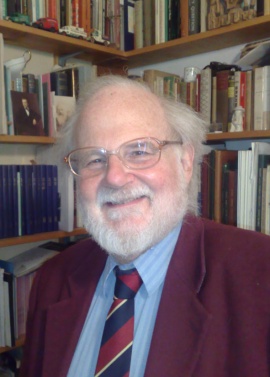
Robert Pascall (Editeur)
Prof. Dr. Robert Pascall (b. Colwyn Bay, 1944, d. June 9, 2018) studied under Sir Jack Westrup at Oxford. He wrote books, analyses and editions of music from Bach to Schoenberg, with a special focus on Brahms. He was Professor and Head of Music at the University of Nottingham 1988-1998 and at Bangor University 1998-2005.
Until his death he was Honorary Professor of Music Philology at the University of Cambridge. He acted as Vice-chair of the new Complete Brahms Edition from its inception in 1991 and was then a member of its Beirat. He edited the symphonies for this edition, including Brahms’s own arrangements of them for piano duet, and advised conductors and orchestras on historically informed performance of Brahms’s music. He was President of the Society for Music Analysis 1996-2000, and was Corresponding Director of the American Brahms Society and an Honorary Member of the Royal Musical Association.
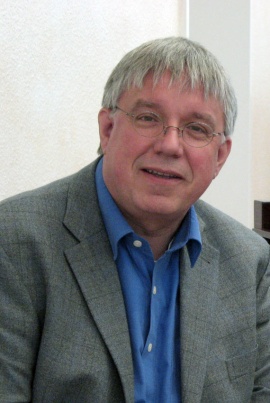
Michael Struck (Editeur)
Dr. Michael Struck, born in 1952 in Hannover, studied school music, private music teaching, piano (diploma, class of Werner Schröter), musicology (Constantin Floros) and pedagogy at the music conservatory in Hamburg and at Hamburg University. In 1984 he completed his doctorate with a thesis on Schumann’s controversial late instrumental works.
He is a research associate at the research centre the new “Johannes Brahms Complete Edition” at Kiel University (member of the editorial board), as well as editor and supervisor of numerous volumes. He is the author of many musicological publications on music of the 18th to 20th centuries and other work editions. Struck is also a music critic. As a pianist he has given concerts with the vocal ensemble of Kiel University as well as with the Wiesbaden Chamber Choir and has given concert lectures (in 1989, 1997, 2001, 2005 as part of the matinees on “Raritäten der Klaviermusik” in Husum). In 2009 he was awarded the Schumann Prize of the City of Zwickau, in 2010 as a scholar at the Brahms Research Centre at the Musikwissenschaftliches Institut of Kiel University he was a co-prizewinner of the Brahms Prize 2010, conferred by the Brahms-Gesellschaft Schleswig-Holstein.
Informations sur la sécurité du produit

G. Henle Verlag
Vous trouverez ici des informations sur le fabricant du produit.G. Henle Verlag e.K.
Forstenrieder Allee 122
81476 München
Allemagne
info@henle.de
www.henle.com
Perhaps the farthest-reaching revelations in the new edition of the Second Symphony are related to the order of composition of the four movements and the disposition of the low brass instruments. All in all, this amounts to something of a good musicological detective story, elements of which have been adumbrated in previous publications (including Reinhold Brinkmann’s book on the Second Symphony, Late Idyll), but never fully clarified hitherto. … None of the foregoing aspects of Brahms’s Second is readily apparent from the printed score that spreads so handsomely and readably across 216 pages of the new volume. But the performer or student who spends time working through the splendid introduction and the richly detailed critical report will have the privilege – and the thrill–of entering into Brahms’s creative world, and into the compositional evolution of one of the great masterworks of the symphonic repertoire.Is a new Brahms edition necessary? Certainly not in the way solving the world’s problems of war, terrorism, health, and hunger are “necessary”. But the present volume makes a strong case indeed for why the new Brahms edition is a welcome arrival on the musical and musicological scene.
American Brahms Society, 2004recommandations
autogenerated_cross_selling
Autres éditions de ce titre
Autres éditions de ce titre


